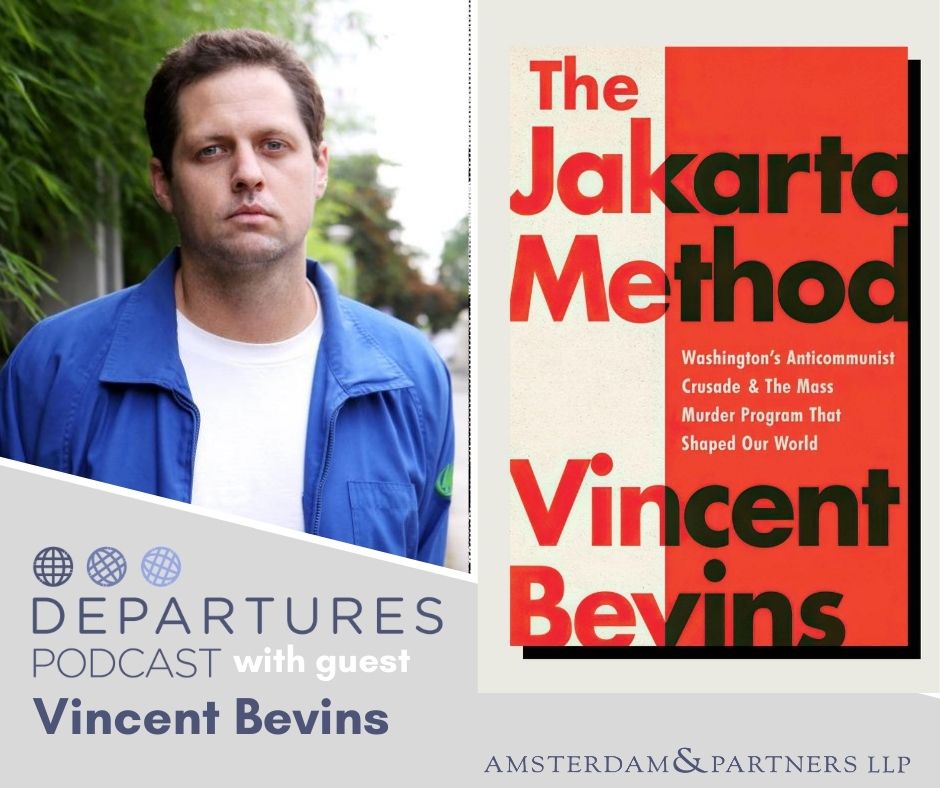Departures Podcast with Vincent Bevins

In the 1950s and 1960s, the United States engaged in a relentless anticommunism crusade which included the sponsorship of mass killings, coups, and installations of authoritarian regimes across much of the global South, from Indonesia to Brazil.
In his fascinating new book, “The Jakarta Method: Washington’s Anticommunist Crusade and the Mass Murder Program that Shaped Our World,” journalist and author Vincent Bevins explores some fascinating personal testimonials of survivors and their families, and studies how this pattern of conduct by the United States often resulted in structural, systemic defects in many of the countries which to this today continues to impede the consolidation of democracy and stability.
Most Americans, and many in the media and pundit class, continue to overlook the human toll that it took for the United States to win the Cold War, and defer to an attitude of exceptionalism. Bevins argues that we need to overcome this and grapple with how our actions impacted these countries.
“There’s a contradiction between empire and democracy – when you are a regular person that has to put food on the table for your family, you have your own things to worry about, but then you are also supposed to pay attention to what your government is doing and understand how to say yes or no to certain actions,” Bevins says, and how is one expected to do that when the US has been active in 180 countries all around the world.
“However much you love the United States, you still have a moral responsibility to know your own history and to criticize yourself first,” he argues, pointing out that media narratives need to be more realistic about the context of how other countries view the United States based on the history of intervention.
With a focus on the overthrow of Sukarno in Indonesia and the installation of the brutal Suharto regime, Bevins raises the interesting question of whether or not it was even necessary to kill 1 million people during those years.
“What if there had never been this violent attempt to crush Indonesian democracy from 1955-1959? What if he were allowed to oversee a multiparty democracy in which the Indonesian Communist Party just existed, winning 30-40% of the votes and influencing policy but not carrying out a revolution. This is what Italy was like during the Cold War, this is what France was like during the Cold War.”
But we can never know what the alternative history would be.











